The United States has called into question the Maldives’ commitment to democracy and human rights following the imprisonment of former Defence Minister Mohamed Nazim and the arrest of three journalists from opposition protests last week.
“The United States is deeply troubled by recent developments in Maldives that call into question that nation’s commitment to democracy and individual human rights,” the US Department of State’s Office of the Spokesperson in Washington DC said on Friday.
Nazim’s “trial was particularly concerning, as it was marred by the same apparent lack of appropriate criminal procedures as the recent trial of former President Mohamed Nasheed,” said the office.
The Criminal Court on Thursday found Nazim guilty of smuggling weapons, and sentenced him to 11 years in jail. On March 13, the court convicted Nasheed of terrorism over the military detention of Criminal Court Chief Judge Abdulla Mohamed in January 2012, and sentenced to him to 13 years in jail.
The US noted the Criminal Court’s refusal to call the majority of Nazim’s defence witnesses and said it had “concerns regarding the lack of impartiality and independence of the judges.”
Nazim’s lawyers have said the Criminal Court had obstructed the former Defence Minister from mounting a proper defence, and have said they will appeal the verdict at the High Court as soon as possible.
The US has called on the Maldives “to take steps to restore confidence in its hard-fought democracy and the rule of law, including judicial independence and freedom of press.”
Noting freedom of the press is a fundamental democratic right, the State Department said it was in touch with the government of Maldives to clarify why three journalists were detained without charges last week.
The three are opposition aligned Raajje TV’s Mohamed Wisam and Adam Zareer, and Channel One’s Mohamed Niyaz. They were arrested from the Alliance Against Brutality’s nightly protests on Wednesday and Tuesday, respectively.
The Maldives Police Services said the three journalists were arrested along with several protesters for “obstructing police duties and disobeying police orders.”
Meanwhile, Assistant Secretary of State for South and Central Asian Affairs Nisha Biswal said the “Maldives’ democratic institutions remain weak and are easily manipulated, while the judiciary has become politicised.”
Testifying before the House Foreign Affairs Committee’s Subcommittee on Asia and the Pacific on March 24, Biswal said increasing political turbulence in the Maldives was adding to mounting challenges, namely high youth unemployment, growing religious extremism and social unrest.
The sentencing of Nasheed, the country’s first democratically elected leader, calls “into question Maldives commitment to the minimum fair trial guarantees and the rule of law,” she added.
The US will continue to engage with the Maldives on counter-terrorism, maritime security and climate change issues in 2016, she said.
“Maritime security is of great concern due to potential threats posed by narcotics trafficking, piracy in the Indian Ocean, and sea-borne trade in illicit materials that could be potentially used for terrorist activity,” she said.
 (0)Dislikes
(0)Dislikes (0)
(0)
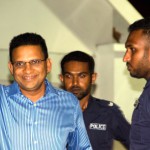
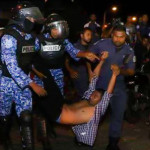
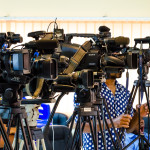

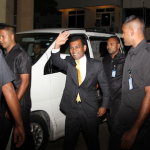
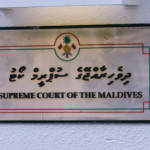
The Maldives Police Services said the three journalists were arrested along with several protesters for “obstructing police duties and disobeying police orders.”
This is the new catch-all clause that's used to lock up anyone the regime dislikes. Under dictator Gayyoom the clause was a bit different. Anyone who "disobeyed" the leader or spoke against the leader were locked up. The new phrase is used for exactly the same purpose!
Libya, Egypt, Syria and Iraq has descended into mega chaos after attempts to convert the countries into democratic states, a noble aim no doubt.
Unlike the US and the UK diplomats and politicians, Maldivains ACTUALLY HAVE TO LIVE in their country and should not be asked to subject themselves to chaos in the name of a democratic ideal (which may happen some day).
Some realism is needed from those clountries that call for democracy. It is a valid and justified call but the domestic politics it is nothing but a foregn endorsement for creating a chaos.
Its time to stop treating any domestic political game as a democratic movement. The US and UN should be doing Maldives a better favour in calling order in the country, rather than using this loaded word 'democracy'.
The Untied States and the International community needs to ask themselves if there can be any other solution or serious alternative to the long road of democracy consolidating democratic Institutions, constitutional government and rule of law, internationally supported if and when need be, or to seeking to resolve major societal conflicts through the political means of negotiation and Compromise in the Maldives and to be developed a more affective method at an international level, for identifying and punishing serious human rights abuses, especially those perpetrated by state personnel, and for instituting sanctions on the administration that permit them !?
Thank you.
The US wasn't "deeply troubled" when the politicized courts hijacked the 2013 election and dismantled the EC. So again, it's a little late to pretend to care now. The judiciary has not become politicized, it has always been politicized and that's what Nasheed was trying to address when he was in office. Maldives does not have a democracy, it was working towards democracy from 2009 until early 2012, and then it was over. The nail in the coffin was when everyone (Maldivians included) stood by and watched Gayoom and company use the courts to rig the last so called election.
@sure The "interested" Western countries have done more than enough to ignore the 2012 coup and 2013 election fraud in the name of keeping stability. It is not their fault that Gayoom and his cronies refuse to let anyone outside of their corrupt family take part in their "democracy". Issuing useless statements about honoring democratic ideals isn't really what I would consider intrusive foreign policy. Maldives doesn't have anything for the West so it's quite obvious that we're more than happy to look the other way while your masters abuse civilians. But the US does have to pretend to care about human rights which is why its diplomats will issue vague and absolutely useless statements about "honoring democratic ideals" from time to time. As long as you only offer tuna, tourism and Banlgadeshi slaves, the West isn't interested. Maybe if Gayoom finds his fairy tale oil reserve, the infidels will start to take a real interest in establishing a CIA approved democracy.
Order, stability and quiet - but at what price?
I believe India and the rest was too hasty for what ever reason in acknowledging 2012 coup unfortunately. And President Nasheed was too hasty in resigning for what ever the reason was and while making all the way to office which did not giving the room for the International community and the UN to intervene ? But my question is will they or do they have the capacity to intervene, even intervene now which is questionable and I doubt ! This proves that the Maldivians had to go through this scenario and keep going through it unfortunately. We need another UN!
The one and only UN should be more responsive but the flaw is only state parties can have access to UN bodies.
@ waste of time
Even a 'CIA approved brand' of democracy is better than the chaos thats happening in Maldives for the 10 years. Maldives is paying is hight cost interms of lost time, effort, economic and human loss on by this wild goose chase for demockratic utopia.